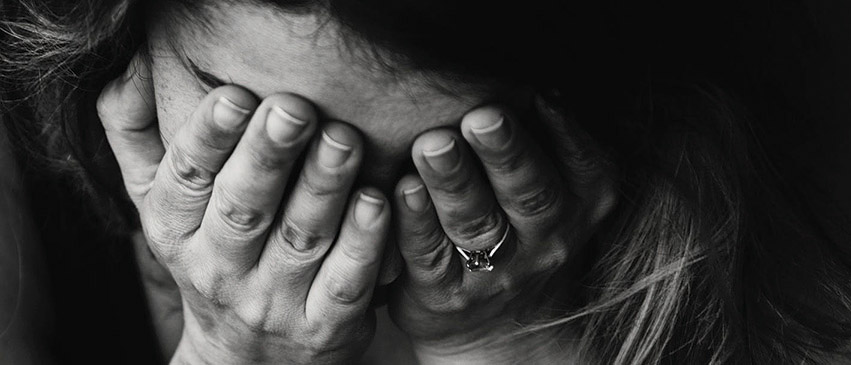
Having just come in from the rain, she was wearing a polka dot raincoat. She was surveying her surroundings in the largest of our two emergency shelters, while squeezing her fleecy white stuffed toy. She caught my attention and sidled up next to me while her mother was tearfully talking with a domestic violence caseworker. Her mother had been brutally beaten and had made her way to the Center for Prevention of Abuse with her young daughter to seek help.
The child stood with me for a few moments, and then held up her stuffed toy for me to see and said, “My lamb is scared.” She was four years old and had witnessed her father beating her mother.
Domestic violence plagues nearly every community, culture, profession, religion, gender and age group. It has a negative and destructive ripple effect on families, friends and neighbors; our overall safety and peace; and even the economy. For more than four decades, the Center for Prevention of Abuse (CFPA) has boldly come to the aid of domestic violence survivors in central Illinois. Nevertheless, this year has thrown us a curveball. Interpersonal violence has quite literally been a pandemic within a pandemic.
Abusers Exploit the Crisis
The COVID-19 health crisis has resulted in domestic partners and families spending more time together in close quarters. With school taking place around the kitchen table and in-person activities cancelled, families have felt crowded and frustrated. Jobs have been lost. Finances may be strained. And then there is the fear of the virus itself. For many, stress has been at an all-time high. If a person was abusive before, they are likely to become more violent because of the added stressors.
The team at CFPA has seen victims of domestic violence sequestered with their abusers—some unable to find the space needed to seek help. During times of crisis like a natural disaster or pandemic, the risk of gender-based violence escalates, and the need for specialized care increases.
Even in our everyday lives, five people in the United States are physically abused by an intimate partner every 15 seconds. According to global reports, as well as law enforcement in central Illinois, a dramatic upturn in domestic violence began when citizens were asked to shelter at home. Victims stayed home as instructed—but in many cases home has been the most unsafe place for them to be. Abusers have exploited the isolation and social distancing to enhance their power, grow their control, and increase violence within the relationship. There has been a goliath leap in domestic violence calls to 9-1-1.
Safe Space for Healing
This unparalleled dynamic has made CFPA’s crisis hotline critically important. During the health crisis, direct access to our professional staff has remained available all hours of the day and night, taking calls from individuals who are in danger and in need of safe shelter or crisis intervention. Likewise, CFPA’s emergency shelters remain available and staffed by our courageous and compassionate Domestic Violence Family Centered Services team. Our Order of Protection offices have also been “boots on the ground,” continuing to be there for those who seek safety through the court system. Medical advocates meet people where they are, traveling to be by a victim’s side in a hospital setting whenever called—all day, every day.
Earlier this year, CFPA successfully implemented a telehealth effort that has allowed the majority of staff—counselors, caseworkers, advocates, therapists, educators and our administrative team—to continue to provide safety, hope and healing to survivors of all ages, without ceasing. We have consciously increased our efforts to bring public awareness to not only the crisis hotline, but all of the agency’s free and confidential services. Our message remains: CFPA is here for you, even when it is hard to talk. When you are ready, so are we.
Sustaining the Mission
As we all struggle to understand the turmoil this year has brought us, CFPA remains committed to ensuring an effective response. We know that abuse does not discriminate, and neither do we. Our team is using our energy, leadership and trusted stewardship to sustain our longstanding mission, while exploring new ways to address community and client needs. CFPA is creating hope that brings an optimistic and constructive ripple effect for survivors, their families, friends, neighbors, the economy, and everyone’s safety and peace. PM
The Center for Prevention of Abuse provides free and confidential services for victims of domestic violence, human trafficking, sexual abuse/assault, elder abuse, and abuse of adults living with disabilities, as well as prevention education. If you or someone you know is in need of help, CFPA can be reached 24/7 at 1-800-559-SAFE (7233) or by visiting centerforpreventionofabuse.org.
- Log in to post comments

